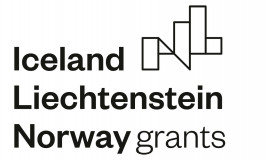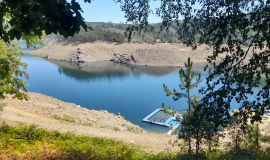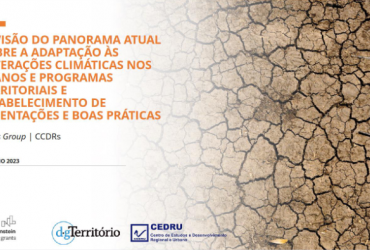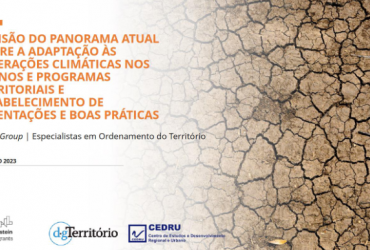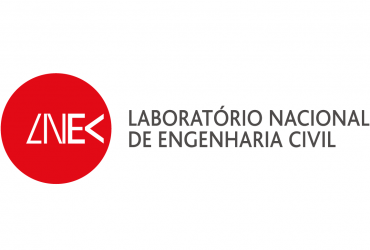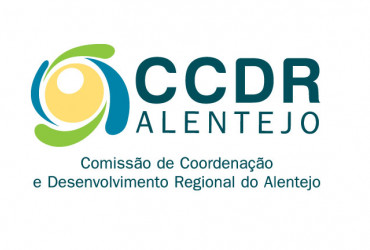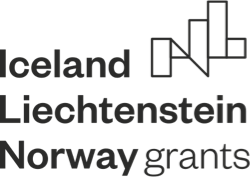
NATIONAL ROADMAP FOR ADAPTATION 2100
The National Roadmap for Adaptation 2100 project - Portuguese Territorial Climate Change Vulnerability Assessment for XXI Century (RNA 2100), defines narratives of the evolution of vulnerabilities and impacts of climate change in Portugal. It also assesses the need for investment for adaptation and the socio-economic costs of inaction.
The RNA 2100 supports and responds to public policy exercises to adapt to climate change at various levels of territorial intervention. Because it is also supported by initiatives to disseminate its results, including to the general public, the RNA 2100 has the ambition to become an important tool to raise awareness on climate change adaptation.
News
On the morning of July 13th 2023, a Session online which aimed to discuss how
climate change adaptation is addressed in the Municipal Master Plan reviews
and the difficulties encountered.
On July 12th, 2023, Session
online which aimed to discuss the difficulties and needs in
adopting measures to adapt to climate change in
review of the Municipal Master Plans took place.
On May 18th, 2023, a workshop/Roundtable was held in Lisbon (National Civil Engineering Laboratory) on the theme "Adapting to Climate Change: Between Good Practices and Good Policies in Portugal", introducing the current scenario in the context of Adaptation to Climate Change, as well as the guiding principles of the respective public policies.
On April 27th, 2023, a workshop/thematic workshop was held in Évora on the theme "Urban Design, Infrastructure and Equipment", presenting the Regional Strategy for Adaptation to Climate Change in the Alentejo and the Prospective Regional Diagnosis.
Financed by:
Partners:
Banco de Portugal is the central bank of the Portuguese Republic. The Bank has two core missions: to maintain price stability and to promote the stability of the financial system. The Bank is part of the Eurosystem and the European System of Central Banks, the Single Supervisory Mechanism and the Single Resolution Mechanism.
Directorate‑General for Territorial Development (DGT)
The Direção-Geral do Território (DGT) is the national public agency responsible for pursuing public policies on spatial planning and urban development, under the principles, objectives and norms established by the Land and Planning Act.
DGT also is responsible for the consolidation, application and updating of the legal and regulatory framework that supports it, for the promotion of land management best practices, as well as the development and dissemination of guidance and technical criteria that guarantee an adequate organization, enhancement and use of the national territory, along with the creation and maintenance of reference geographic databases, namely the National Geographic Information System, the National System of Territorial Information and the National Cadastral Information System and still sustain production of national topographic reference cartography and maintain the geodetic network.
Faculty of Sciences of the University of Lisbon (FCUL)
In its strategic development plan, FCUL established the following primary purposes:
1. To promote quality, both in science and in technology;
2. To promote a good basic training and a solid specialised training which enables its graduate students to successfully cope with a highly competitive and rapidly changing professional environment;
3. To guarantee the initiation to research in active and competitive groups, with an international prominence.
FCUL has a based Associate Laboratory, is focused on quantitative Earth Science research, combining analytical studies, data analysis, observational activities and modelling, relevant for Atmospheric, Ocean and Solid Earth processes, and Renewable Energy applications. As an integrated Earth System Science institute, FCUL supports cross-discipline interactions, most relevant for the understanding of Earth processes driven by the interaction of different Earth components.
Portuguese Institute for Sea and Atmosphere (IPMA)
IPMA I. P. is the state laboratory whose mission is to promote and coordinate scientific research, technological development, innovation and service on the seas and atmosphere, ensuring the implementation of national strategies and policies in their areas of expertise, thus contributing to the economic and social development. IPMA, IP, is the national authority in the fields of meteorology, aeronautical meteorology, climate, seismology, and geomagnetism. IPMA is the Portuguese National meteorological Service (NMS).
Norwegian Directorate for Civil Protection (DSB)
DSB's mission is to oversee risks and vulnerabilities. Its responsibilities cover local and regional preparedness and emergency planning, fire safety, electrical safety, handling and transport of dangerous substances as well as product and consumer safety. In addition, the Norwegian Civil Defence, the Faculty of Emergency Planning (NUSB), the Norwegian Fire Academy (NorgesBrannskole) and the Academy of Civil Defence belong to the DSB portfolio. Furthermore, the Norwegian Support Team (NST) has emergency capacity of international scope.



